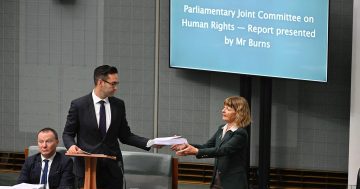 A model for a national Human Rights Act has been launched by the Australian Human Rights Commission (AHRC) to ensure legal protections for the basic rights of all Australians and provide avenues for redress where people’s rights are breached.
A model for a national Human Rights Act has been launched by the Australian Human Rights Commission (AHRC) to ensure legal protections for the basic rights of all Australians and provide avenues for redress where people’s rights are breached.
President of the AHRC, Rosalind Croucher said Australia was the only liberal democracy that did not have an act or charter of rights at the national level, “and there are currently very few legal protections for the fundamental rights of Australians.”
“A Human Rights Act sets out the basic rights of Australians, requires proactive consideration of how these rights are being protected, and provides avenues for redress if people’s rights are infringed,” Professor Croucher said.
“A Human Rights Act is the central missing piece of government accountability in Australia,” she said.
“It will increase transparency and trust in Governments by requiring them to fully consider human rights in their decisions, laws, policies, and practice.”
Professor Croucher said the Commission’s Human Rights Act proposal was detailed in a comprehensive proposed model Position paper: A Human Rights Act for Australia.
She said that in this model, people with human rights complaints could endeavour to reach a solution through conciliation or administrative appeal, supported by the AHRC, and then refer the matter to the Federal Court.
“This replicates the current process for discrimination complaints,” Professor Croucher said.
“The proposed model builds on the experience of the Commission over 30-plus years in managing discrimination law complaints – in short, it is an evolution not a revolution,” she said.
“This model would also realise the original design of the Commission when it was permanently established in 1986, which was designed around an Australian Bill of Rights.”
Professor Croucher said the proposed model included pathways to review administrative decisions that were incompatible with human rights as well as provisions for enhanced parliamentary scrutiny of laws and policies, to ensure they were compatible with human rights.
She said a Human Rights Act would not require constitutional change – it would be an ordinary Act of parliament.
“Australia has committed to various international human rights obligations, telling the world those rights matter,” the President of AHRC said.
“We have an obligation to legislate domestically to ensure these rights are protected for all Australians.”
The ARHC’s 379-page position paper can be downloaded at this PS News link.











